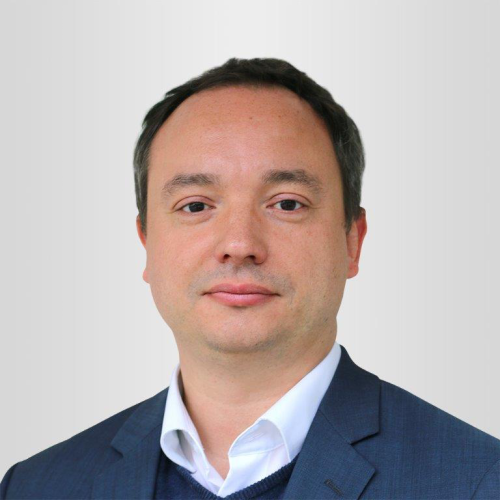In our modern era of acceleration, tech moves faster than most can keep up with. But PDD focuses its efforts on human-centred innovation. As CEO for the last 15 years, Karsten Fischer’s approach has driven design research practices to the forefront, helping healthcare giants around the world develop uniquely effective products, treatments, and experiences that lead to better patient outcomes.
In this CEO.digital Q&A, Karsten tells us about his journey to the position of CEO at PDD, how he approaches his work, how human-centred design and innovation is carried out at PDD, and what he sees on the horizon for the industry in 2023.
Karsten Fischer
CEO of PDD
Karsten Fischer is the CEO of PDD, global product and service design and innovation consultancy. Karsten has a degree in Management & Systems Science from the Cass Business School in London. Karsten leads a team of 70 researchers, designers and engineers in design studios in Europe and Asia who design innovative products, services and experiences for international clients in the consumer, medical and industrial sectors. Before joining PDD, Karsten worked in the airline industry, telecommunications and financial services.

CEO.digital: Please paint a brief picture of your career journey. How did you arrive at PDD?
Karsten Fischer: “I started my career in financial services, followed by a management role in the airline industry. This was a time when national carriers were seen as ‘flagship’ operators. Their sense of pride was somehow disconnected from the reality of their customer service. It’s ironic perhaps then, that for the rest of my career I’ve ended up focusing on customers and on meeting their needs and expectations.
“I have always been drawn to international relations and was passionate about the power of global organisations to create positive impact in the world. Design and innovation gave me a chance to realise some of my deepest aspirations. At PDD, we all share a common sense of purpose as we use research, design and technology to create experiences that improve people’s lives.”
What are the problems keeping your clients awake at night?
“Our work spans the consumer, healthcare and industrial sectors, and we’re seeing commonalities across the globe. Across all these sectors, increased costs and sustainability mandates continue to influence client decisions around design and innovation.
“In the consumer sector, companies are trying to balance price pressures amidst the current economic climate with their need to be socially responsible and offer a fair price for consumers in the markets they operate in. Government regulations and lifestyle changes are steering consumers towards healthier alternatives, putting traditional revenue sources at risk.
“Despite technological advances, many patients and healthcare professionals are reluctant to fully embrace digital health solutions. Addressing privacy concerns and supporting adoption must become a priority to improve healthcare equality and deliver better services for all.
“Lastly, we are seeing how healthcare is moving into the home, with the pandemic a definite catalyst for this type of care. This is a challenge for medical device companies that traditionally supplied hospitals with equipment.”
How do you help your clients at PDD?
“Some of the big issues our clients are facing, such as the adoption of digital health technologies or the decarbonisation of supply chains, are rooted in a human challenge. We help our clients by creating products, services and experiences that put people – patients, medics, consumers – at the centre. We consider usability and the sustainability implications of materials as part of the overall design process.
“We often find ourselves helping our clients address major business challenges – a landmark drug or medication going ‘off patent’, for example. In those instances, our multidisciplinary team of designers, researchers and engineers follow a human-centred approach to understand people’s motivations, identify market needs, and create products and experiences that stand out in the market, people love, and deliver commercial success.”

Design research focuses on the ‘why’, giving us insights into who users really are, what they do and why and how they do it. That’s where the opportunities for innovation lie.
Karsten Fischer CEO, PDD
How has wearable tech changed since the pandemic?
“From wellness to smart homes, our lives are being measured, quantified and optimised to the extreme. The benefits of digitisation and connectivity cannot be ignored, but in a post-pandemic world, some of our assumptions around the adoption of wearable technologies are also being challenged.
“Customers and patients are increasingly aware of the value of their data and expect something in return if they’re expected to share personal details. When it comes to technology, consumers are looking for products and experiences that feel relevant and can enhance their lives. Wearables are no exception.”
What roles do design-thinking and innovation play in making healthcare more personalised and impactful to patients?
“Design research helps us understand how people might interact with what doesn’t yet exist. Instead of surveys or focus groups, we use observations, ethnography, cultural safaris, and a range of other tools to assemble a detailed, human-centred picture, seeing each patient as a human as opposed to a statistic. Rather than relying solely on what people say, we use the tools of anthropology, psychology, and sociology to understand why people behave the way they do. This enables us to get to the bottom of their unmet needs, define challenges to solve, and establish paths for improvements and a better user experience.
“Design research focuses on the ‘why’, giving us insights into who users really are, what they do and why and how they do it. That’s where the opportunities for innovation lie.”
What are some things not getting enough attention in healthcare?
“Unequal access to healthcare continues to be a major issue around the world, and one that is very close to our hearts. Governments around the world need to build trust, invest and support the adoption of digital healthcare platforms to facilitate access. Tackling the barriers to adoption and addressing people’s fears around data and privacy, is key.
“Another area that requires more research is the interaction between public health and environmental policies. From ventilation systems to air pollution, it’s time to design products and experiences that support our wellbeing in the places we live in.
“Back in 2015, the UN set out their Agenda for Sustainable Development 2030. Today, that commitment to people, prosperity, planet, partnership and peace, feels more relevant than ever. In our work with global healthcare companies, we are seeing sustainability, social purpose, and equal access to healthcare as key drivers of sustained growth.”
What are your predictions in your industry for 2023 and beyond?
“Our industry is built on knowledge and advancement, and staff acquisition and retention will continue to be a challenge in 2023. Market barriers and borders are extremely unhelpful and need to be addressed.
“Another important issue is the lack of diversity. From programmes to recognise unconscious bias to efforts to widen and diversify the talent pool, as an industry we need to continue to tackle this challenge by supporting inclusive policies in design and technology education and recruitment.
“In addition, flexible working practices are here to stay, with PDD empowering employees to work in whichever way is most productive for them. Whilst we are seeing a reversal of some of those flexible working policies introduced during the pandemic in professional services, we believe trust and flexibility are key components to a happy and productive workforce and hope to see companies continue to prioritise this.”
Anything else you’d like to talk about.
“Many of our clients operate globally, in markets geographies where significant regulatory, political and economic shifts have become the norm. That’s set to continue this year. In 2023, remaining agile, understanding and adapting to rapidly changing environments will be key. We look forward to that challenge as we continue to help clients innovate and grow in this highly unpredictable world.”
Learn More About PDD
PDD is a leading innovation consultancy that creates products and experiences that enhance businesses and improve people’s lives. With a unique multi-disciplinary approach which is rooted in Human Centred Design, PDD helps customers in the healthcare and consumer industries achieve commercial and creative success. Clients include some of the world’s leading healthcare and consumer companies Beckton Dickinson (BD), Novartis, Samsung and Nestlé and influential startups like Trojan Energy. Find out more at www.pddinnovation.com







